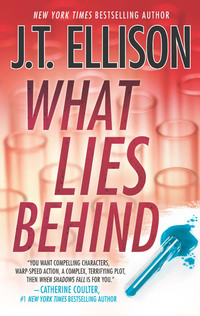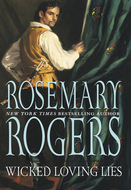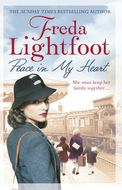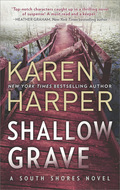Kitap dosya olarak indirilemez ancak uygulamamız üzerinden veya online olarak web sitemizden okunabilir.
Kitabı oku: «A Samantha Owens Novel»
Critically acclaimed New York Times bestselling author J. T. Ellison delivers another riveting novel featuring the incomparable Dr. Samantha Owens
Waking to sirens in the night is hardly unusual for Samantha Owens. No longer a medical examiner, she doesn’t lose sleep over them, but a routine police investigation in her neighborhood has her curious. When her homicide detective friend, Darren Fletcher, invites her to look over the evidence, she jumps at the chance and immediately realizes the crime scene has been staged. What seems to be a clear case of murder/suicide—a crime of passion—is anything but. The discovery of toxic substances in hidden vials indicates that something much more sinister is at play…
As Fletch and Sam try to understand what and who they are dealing with, they are summoned to a meeting at the State Department. High-level officials are interested in what they know and seem to be keeping secrets of their own. It’s up to Sam and Fletch to uncover what lies behind the deception as the threat of bioterrorism is exposed, and her boyfriend, Xander Whitfield, may be in the line of fire.
Unsure who to trust, Sam and Fletch find themselves up against very powerful people at every stage in the investigation. No one is who they appear to be and with every minute that passes, the danger escalates. It’s Sam’s most complex case yet and the terrifying reality is beyond anything she could have imagined.
What Lies Behind
J.T. Ellison

For the late great John Seigenthaler (1927–2014)
And, as always, for Randy
Contents
Cover
Back Cover Text
Title Page
Dedication
Prologue
TUESDAY: MORNING
Chapter 1
Chapter 2
Chapter 3
Chapter 4
Chapter 5
Chapter 6
Chapter 7
Chapter 8
Chapter 9
Chapter 10
Chapter 11
Chapter 12
Chapter 13
Chapter 14
Chapter 15
Chapter 16
Chapter 17
Chapter 18
Chapter 19
Chapter 20
Chapter 21
Chapter 22
Chapter 23
Chapter 24
Chapter 25
TUESDAY: AFTERNOON
Chapter 26
Chapter 27
Chapter 28
Chapter 29
Chapter 30
Chapter 31
Chapter 32
Chapter 33
Chapter 34
Chapter 35
Chapter 36
Chapter 37
Chapter 38
Chapter 39
Chapter 40
Chapter 41
Chapter 42
Chapter 43
Chapter 44
TUESDAY: EVENING
Chapter 45
Chapter 46
Chapter 47
Chapter 48
Chapter 49
Chapter 50
Chapter 51
Chapter 52
Chapter 53
Chapter 54
Chapter 55
Chapter 56
Chapter 57
Epilogue
Acknowledgments
Extract
Copyright
Prologue
HE WATCHED. BECAUSE that’s what he did. It’s what he did best.
He used to watch in person, but the gods had conspired against him, and now it was safer for him to watch remotely. Not as satisfying, but it got the job done.
When on the hunt, he lived behind the bank of computers—eating, drinking, barely leaving to shower and sleep. He watched, and bided his time. Patient. Ever patient. Said the spider to the fly.
They were so stupid, really, to think what they said and did online was remotely secure. A private direct message sent from a burner account, a text gone astray, a mistaken link. A few clicks in any direction, a little bit of malware, and he had them. Every private thought, every post, everything they shared. They were only talking to their friends, after all. They thought they were safe.
They didn’t realize he was one of the nameless, faceless, you’ve got the nicest smile, glad you had a fun weekend bots out there, tracking everything they did. Gorging himself on their secrets.
The internet made stalking so much easier. He didn’t even have to leave his house until he was ready. Until the urge was so bright, so intense, he couldn’t stand it anymore. And under the circumstances, the ever-watchful eyes, this was a very good thing.
In the beginning, he’d relied on his own skills—his careful, meticulous planning, watching from afar with binoculars and camera lenses. Developing the film himself so no one would see an overabundance of photos of a single woman in various stages of her life and undress and grief and happiness and think there was something wrong.
Now, a few clicks, and there she would be, in all her glory. Notes to lovers, to BFFs, hearts poured out onto a keyboard. Uploads and downloads and the occasional chic self-porn. A life that was supposed to be private was his to intercept and enjoy at his leisure. And enjoy he did.
There was only one problem. He’d recognized the growing sense of dissatisfaction a few years earlier. Convenience had usurped chance. His special muscles atrophied. The watching took on a mechanical air. Distant, so distant.
The thrill of the hunt was gone. There was no danger anymore. Physical contact was only made when he came to finish the job.
He missed the chase. Ducking behind buildings, wearing disguises, renting cars. The breathless moments—had he been seen?
Smelling the perfumes left on a vanity, the shampoo in the shower, the soap in the dish. Slipping between the smooth sheets. Riffling through drawers, lace and silk gliding against the pads of his fingers. Drinking from the orange juice, touching the lettuce and eggs, leaving bits of himself behind in the sink.
They told him the new world wouldn’t be as fun. That he’d have to be careful. But damn it all, he wanted more.
He wanted them all.
But he couldn’t have them all. Not now. Not with so many people looking.
So he searched. He befriended and dazzled, was a shoulder to cry on.
And he found the perfect one. Another perfect one.
He took a sip from his cooling coffee, adjusted the chair, the screens. Today he would watch her, and tonight, tonight she would be his at last.
The hours passed slowly, so very slowly. The camera caught fragments of her as she moved through her apartment—it was Sunday, a day of rest. She always stayed home on Sundays. Slept in. Had a leisurely breakfast. Read magazines, painted her nails, watched a movie. Mundane things. She was a creature of habit.
Too easy. She’s begging for it. She hasn’t taken a precaution in years. This won’t satisfy you a bit, and you know it.
He ignored the voice, as he had been since he’d picked her. The voice, whatever part of his conscience that still lived, was more of an annoyance than anything else. Sometimes it begged, cajoled. Sometimes it drove, commanded. He’d listened to it well for all his life, but lately, the voice had become less brave. Less artistic. Less everything.
Patterns create boredom. Boredom creates mistakes.
What would you have me do? Walk away?
An annoyed sigh. Yes.
No. Patterns are what makes the world go around. Without them, the world would descend into chaos. We would descend into chaos. I am doing my part to keep the world revolving. So shut. Up. Already.
He edged closer to the screen. Sweat trickled down his back, gathering in the groove above his pants. He shifted, pressed back against the chair. He was still in good shape, considering all the sitting he did now. He worked at it, using his own body weight to keep strong and lithe. Muscles tight, waist thin. Hair—short and chemically blond; jaw—square; teeth—perfectly straight; eyes—the lightest blue. All functioning normally, better than most men his age. The strange gift of symmetry imbued by his DNA that made him beautiful. He crossed between the races; he was a sight to behold.
That’s why his friends called him Beauty.
His beauty was his camouflage. Nothing beautiful could hurt you. Nothing beautiful could betray and deceive or harm. Nothing beautiful could slice and grind and strangle.
Beauty was a deadly weapon. The one no one ever saw coming.
He grinned to himself as he watched her settle in for a Sunday afternoon nap.
Her last nap.
It was time.
And when it was over, he would turn his attentions to a more interesting prey. A challenge. Since he hadn’t had one in so long.
The one who was looking for him. He would take his time. Be cautious and careful. But she would be his. If it was the last thing he did, she would be his.
TUESDAY: MORNING
What lies behind us and what lies before us are
tiny matters compared to what lies within us.
—Emerson
Chapter 1
Georgetown Washington, D.C. Tuesday morning
LAUGHTER.
They’d drunk too much, gotten too loud, too boisterous. Mr. Smith’s kicked them out a few minutes past midnight, and they stumbled into the Georgetown night, dragged themselves up Wisconsin and loped across M Street, tripping and clutching each other to stay upright, cackling hysterically, their heels an incoherent tattoo on the sidewalks. People watched them, their antics greeted with amusement or derision, depending on the mood of the observers.
“I can’t go on, I can’t. Stop, Emma, please, stop.”
Emma, ponytailed, blonde and lanky, fiddled with her tights with one hand, tugged on Cameron’s arm. “I gotta pee. We can’t stop now, Cam, it’s just a few more blocks.”
“My feet hurt. And my head.” Cameron slipped, landed hard against the plate-glass window of Starbucks. “Bump!” That set them off again, the giggles turning into guffaws.
Emma yanked on the door to the darkened store. “Nuts. They’re closed.”
“Why are they closed?” Cameron whined.
“’Cause it’s midnight. The witching hour. And you’re not a witch, you’re just a bitch. Tommy’s place is just ahead. Can you make it there?”
Cameron squeezed her eyes closed, chanting the rhyme under her breath. “Not a witch, just a bitch, not a witch, just a bitch.”
“You really are screwed up, aren’t you? Come on.” Emma dragged her to her feet, off down the darkened street.
Georgetown never truly sleeps. Even when the bars close, there are still people about—joggers, the ubiquitous construction workers, musicians and homeless, dog walkers and students, lovers and mistresses. A stew of incessant liveliness, perfect for the college-aged and the cuckolded. The romantics and the hardened.
They made it a block before Cameron stopped dead. She grabbed Emma’s arm, nails digging into the soft flesh.
“Did you hear that?”
Emma strained, but one block up from M Street and two blocks over, all she heard was the tittering of the night birds and the whooshing of tires on pavement, maybe some faint, masked music. “Hear what?”
Cameron shook her head. “I thought I heard something. Someone shouted. I’m drunk. Where are we?”
Emma glanced at the sign on the corner. The numbers and letters weaved together. She shut one eye and the familiar N floated into range.
“We’re on N Street. One more block up. Come on already.”
They started off again. “How are you going to get in? I thought you two broke up. Didn’t he take back his key?”
“We’re not broken up. Just on a break. There’s a difference. He’s so busy now, with school and working. He just took on another new project. He needed some space. I understand.”
“Oh. I see. You understand why you’re not important to him anymore. Big of you.”
“Bitch.” But there was no heat behind the word.
She heard footsteps. Straightened in time to see a jogger cross the street in front of them, legs pounding out a steady rhythm. Chick could move. Emma wasn’t a runner. She played tennis, quite well, but the idea of running for the sake of running was boring to her. At least on the courts there was a tangible goal.
She realized she was alone, looked over her shoulder. Cameron had stopped again, was leaning woozily on a trash can.
“Come on,” Emma said, her tongue getting stuck on the words. She bit back a giggle and held out her hand. “We’re almost there.”
“Gotta rest.”
“Fooocuuuus, Cameron. Don’t make me leave you behind in the dark, all alone. Whooooo. Big nasty dark gonna eat you alive.”
Cameron flipped Emma the bird and stumbled back to her feet. “Lesgo.”
A car turned the corner, engine purring as it disappeared behind them. Now they were truly alone.
One block, turn right. Twenty steps more, then the basement apartment railing appeared on her left. Emma fished the key out of her bra. She’d known they were going to be drunk tonight. Thought a little booty call would be appropriate, even though she and Tommy had, in essence, broken up. Not because he didn’t dig her; he did, she knew it. It was just school was tough on him.
She knew Tommy would be home studying, late into the night, working on some random epithelial cell or DNA splicing theory, as he always seemed to be. Medical school was hard. Hell, undergrad was hard. Harder than she’d expected. Life was hard, too, especially for a pretty young thing with just enough smarts to make it into Georgetown, but maybe not quite enough to stay there. Her parents would freak if she failed out.
Tomorrow, I’ll stop drinking and partying and really study.
Tomorrow.
But for tonight, everyone needed to blow off some steam, get a little nookie. Sex was good for the brain. Raised the levels of oxytocin, serotonin, melatonin, all those tonins Tommy liked to talk about.
Emma shook her hair free of its ponytail so it would fall in a sultry mass about her shoulders, sloppily freshened her lip gloss, licked her lips and shot Cameron a look. Cam seemed like she was about to pass out. Her eyes were half-shut, the smile on her face dreamy and stupid.
Emma slipped as she went down the five stairs to Tommy’s front door. She grabbed the railing with both arms, clung on, the metal biting cruelly into her rib cage. She managed not to drop the key, but one sky-high platform peep-toe clattered toward the door, hitting it with a thump.
“Whoops,” she said, laughing. Cameron hooted like it was the best trick she’d ever seen.
Emma put a finger to her lips. “Shhh. God, you’re gonna wake the whole street.” She righted herself with dignity, squared her shoulders and put the key in the lock.
“Aren’t you going to knock?” Cameron asked.
“Why?” Emma replied, jiggling the key, then turning the knob. The door swung open into darkness.
“Darn it. He’s asleep,” Emma said, looking back over her shoulder. “Better be quiet, Cam. Can you be quiet?”
“Go in, for Chrissakes. I need a drink.”
Emma took off her other heel and stepped inside, the straps looped on her index finger. It was dark, so dark she couldn’t see anything. She ran her hand along the wall by the door, found the light switch. The lamp in the foyer cast its yellow glow into the hallway. Tommy’s bike was leaning against the wall. Careful not to knock it over, she pulled Cameron inside and shut the door. Made her way down the hall into the living room.
Turned on the light. Saw red, and it took a moment for reality to penetrate her margarita-fogged brain.
Red.
Not red.
Blood.
Blood, everywhere. The sofa, the floor, the wall by the two-seater bar.
Emma stood frozen, unable to move. Cameron was busy getting sick behind her, gagging and choking. Only then did the smell of the blood hit her, meaty and raw, like steaks left too long in the refrigerator, their surface shiny and green.
Want to run, want to hide, want to go away.
Something kept her rooted to the spot. “Tommy?” she called.
There was no answer.
“Stay here,” she told Cameron, an unnecessary direction. Cam was on her hands and knees, moaning, trying and failing to scrabble backward away from the living room and the vomit. She bumped up against the hallway wall and ducked her head into her hands, eyes squeezed tightly shut. She wasn’t going to be of any help.
Careful to avoid stepping in the blood, Emma moved along the edges of the living room. Tommy’s bedroom was down the hall. It was dark. There were no sounds but Cameron’s low keening, which sent shivers down Emma’s spine.
“Please,” she said, uncertain to whom the plea was directed. Please don’t let this be Tommy’s blood. Please don’t let him be hurt. Please don’t let him be dead. Please please please please please.
His door was shut. She steeled herself, took two deep breaths. The smell was worse here, tighter, fresher. Almost alive in its awfulness.
She opened the door, flipped on the light.
Screams.
Over and over and over again.
Screams.
Chapter 2
Georgetown
SIRENS RENT THE night air.
The wailing jolted Dr. Samantha Owens from sleep. She listened for a moment, heard them growing louder. They were close. Too close. Several of them, caterwauling through the night as they came near. Instead of peaking and fading, blue lights suddenly flashed on the opposite wall of her bedroom, rotating frantically. The sirens ended with a squawk, but the lights continued their alternating strobes. Based on the angle of the flashes, they’d stopped on O Street.
Her home in Georgetown was generally quiet and calm in the darkness. A few drunk kids every once in a while, hollering as they wound their way back to campus, but rarely something like this.
Clearly, something terrible had happened.
Sam was used to sirens. Living in the city meant they were a regular, nightly, daily occurrence. Sirens used to be the precursor to her part in the festivities, so she always registered their noise. Sirens used to mean her phone was going to ring, and she’d have to drop everything and rush to a crime scene. But that was another life, in another city. One she tried very hard to put behind her.
Her phone wasn’t going to ring, but habits die hard. She glanced at the clock—one in the morning.
She got up, pulled a brush through her shoulder-length brown hair, slipped a warm cashmere sweater over her thin T-shirt, pulled on black leggings and a pair of leather ankle boots. Grabbed a pashmina and tossed it around her shoulders.
Autumn was in full swing, and the late-September temperatures had dropped precipitously over the past week, making D.C. shiver. The bedroom, too, was cold, empty of Xander and his internal furnace. He was on assignment, a close-protection detail with one of his old Army buddies, Chalk. Trevor Reeves Worthington III on his driver’s license, but Chalk forever to his Army mates, named for his propensity to write everything down.
It had only been three weeks since Xander and Chalk had hung out their shingle, made the business official, and they’d already been in high demand. She was glad to see Xander reengage with the world, though she had to admit, it was a bit of a shame. She liked the idea of him up in the woods with Thor at his side, doing his best Thoreau, leading the occasional fishing party, hiking solitary through the woods. The new gig was intense, all-hours, and took him away too much for her liking. Plus, his main job was to throw himself in front of a bullet should the need arise, and she wasn’t at all comfortable with the thought.
She started down the stairs, whistled for Thor. The German shepherd was waiting for her already, ears pricked. She knelt beside him, buried her face in his fur. He was warm, like his daddy, had been curled in a ball in his sheepskin bed, dreaming doggy dreams. He nuzzled her and licked her on the nose gently, then went to stand by the door, alert and ready.
“Let’s go out the back, baby.”
He hurried to her side, and she fastened his lead. She opened the back door, was rewarded with a gust of chilly air, and the voices that carried from the other side of her privacy fence.
You have stooped to a new level, Owens, trying to eavesdrop on a crime scene.
But she went to the far fence, skirting the eternity pool, Thor stuck to her leg like glue. Put her head against the wood. If she turned slightly sideways, she could see through the double slats.
It was so familiar, the shouts and calls. The first responders were there, the police, too. An ambulance was parked on the corner. As she watched, EMTs scrambled toward it with a stretcher. One was kneeling on the gurney itself, straddling a body of indeterminate sex, performing CPR with single-minded intensity.
The open doors of the ambulance blocked the rest. Moments later, they slammed shut and it left in a hurry, sirens wailing. The fire trucks followed, calm now, big beasts rumbling into the night.
The police stayed.
Definitely not a good sign.
She wondered if her friend Darren Fletcher, the newly minted homicide lieutenant, would show. She didn’t know why she assumed it was a homicide, or an attempted homicide, given that someone had been brought out at a rush. It could be anything. More than likely, at this time of night, it was a simple domestic dispute. Someone was punched, had a bloody nose, a black eye, then things got out of control. She ran through the neighbors she knew on O Street, people she’d waved to when walking Thor, imagining them in various states of fury and undress.
Maybe a heart attack. Or a stroke. Embolism, aneurysm, overdose.
God, you are cheery, aren’t you?
She heard one of the cops say, “Hernandez, while you’re at it, go ahead and call the OCME. We’ll need them.”
And she knew. Something inside her gave a little buzz. Death comes in all forms, from all directions. Expected or by surprise, it was the greatest common denominator, the great equalizer. She felt an affinity with the grimness, couldn’t help that. But she had a choice, now. A choice to walk away from the carnage, from the horror. To face death on her own terms, especially since she’d agreed to work with the FBI on their more esoteric cases. A deal made all the more tantalizing because they wouldn’t be dragging her out of bed in the middle of the night to parade, yawning, to a crime scene, where she’d face death in all its incarnations, as she had for so many years as a medical examiner.
She had a more immediate choice, as well. She could open the gate, walk around the block, stand with the crowd of neighbors who’d come to watch the show. Or she could go back inside and return to bed. She’d be able to get several more hours of sleep if she went inside now.
You’re not the M.E. anymore, Sam. She stepped away from the fence.
Thor took advantage of the nocturnal walk to do his business, then she followed him into the silent house, feeling strangely hollow. As she closed the door behind her and watched Thor scoot back to bed, something made her pull out her cell phone and send Fletcher a text.
What’s up on O Street?
She knew it wasn’t too late for him; he was a night owl, especially now that he was seeing FBI Agent Jordan Blake. He’d be up, one way or another. She sent another, this time to Xander.
Miss you.
She poured herself a finger of Ardbeg, thought about it, brought the bottle with her to the couch. Sat down. Took off her boots.
Waited.
Didn’t know exactly what she was waiting for.
She spared a glance at the file folders on the coffee table in front of her. She’d left them scattered carelessly in frustration before climbing the stairs to bed. Crime scene and autopsy photos spilled out of the manila folders, coupled with her notes and Baldwin’s notes and toxicology reports, all jumbled together on the smoky glass. She’d pulled all the autopsy reports from the files and stacked them neatly on the side table; they were her reading material and were proving to be an even bigger frustration than the case itself. This massive, sprawling, unnamed and unacknowledged case.
There were so many pathologists, coroners, methods, regulations, jurisdictions. No one did a postmortem exactly the same, much less were handling several of the individual cases as if there was a criminal component. She’d begun to feel she was interpreting without a Rosetta stone.
When John Baldwin had talked her into coming on board the FBI as a consultant to the behavioral analysis unit, BAU II, to work with his infamous group of profilers, he’d promised she could pick her cases. True to his word, he’d brought her to Quantico, gotten her set up with passes and emails and paperwork galore, then set her loose in the BAU file room. They had so much work, and so few people to handle it, any help was welcome.
And whether she was trying to prove her worth to her new team, or to herself, she’d chosen the big daddy of them all. A stack of files that were getting dusty, because no one could manage to link them, even though there was a single similarity between each victim—every woman was from the same hometown. New Orleans.
She’d seen the box, labeled Cold Case. Read the previous profiler’s report. There was nothing tying them together. The women had died by various means. Stabbings and stranglings and gunshots, one a cardiac arrest from a drug overdose, even a bridge jumper. Nothing highly unusual, nothing esoteric, nothing sexually motivated or even creepy. On the surface at least.
Baldwin had a feeling about the cases, had spent years compiling the ones he thought fit a pattern, and she’d learned to trust his gut when it came to crime. Despite the sometimes innocuous causes of death, the link to New Orleans shouted “connection” to him. But he couldn’t definitively tie all the cases together, nor could anyone on his staff.
Sam had looked through the files in the storage room, shaking her head. The murders did seem unrelated—they were spread all over the country, with different MOs, different murder weapons, different victimologies of all ages and races and socioeconomic levels. And yet, like Baldwin, she sensed the tenuous thread holding them. All of these women had been murdered by the same person. She could just feel it. There was something here. This was a series. Eight of them at last count, over more than twenty years.
Baldwin had just added what he thought might be number nine to the stack, a young woman named Olivia Rives, who’d been found shot to death in Minneapolis last month.
Nine dead. Multiple jurisdictions. No apparent links outside of a hometown and a profiler’s hunch.
A nightmare.
She shot the Ardbeg, poured another and gathered up the thick stack of papers on the side table. No sense going back to bed just this moment. She’d read a while more, keep filling her brain with the disparate notes of nine different autopsy reports by nine different doctors and coroners.
Maybe this time, something would be different.








